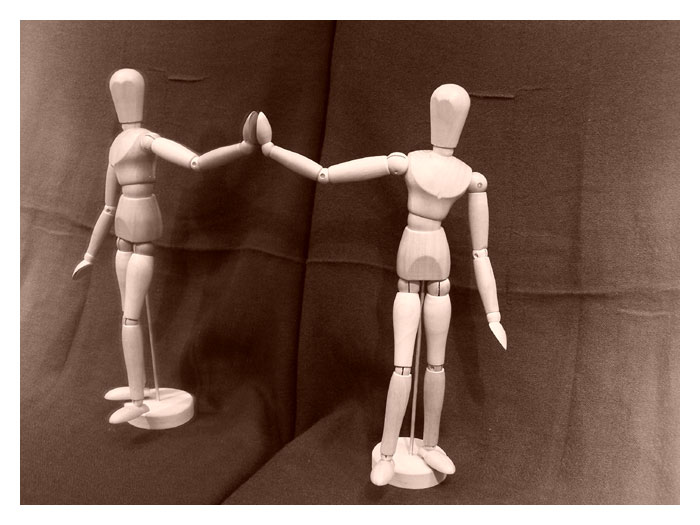 |
Craig White's Literature Courses Terms / Themes Persona or Speaker of a Poem (compare also "voice") |
 |
The concept of a persona or speaker in the poem as a figure or person different from the author helps students of poetry avoid the biographical fallacy of reducing the meaning of a poem to an event or experience in the author's personal life.
1. An assumed character or role, esp. one adopted by an author in his or her writing, or by a performer. (Oxford English Dictionary)
![]()
persona (per-SO-na): In literature, the persona is the narrator, or the storyteller, of a literary work created by the author. As Literature: An Introduction to Fiction, Poetry, and Drama puts it, the persona is not the author, but the author’s creation--the voice “through which the author speaks.” It could be a character in the work, or a fabricated onlooker, relaying the sequence of events in a narrative. (http://www.uncp.edu/home/canada/work/allam/general/glossary.htm#p)
![]()
Persona
pl.
per·so·nas or
per·so·nae
A voice or character
representing the speaker in a literary work.
2. personae
The characters in a dramatic or literary work. [a.k.a.
dramatis personae]
3. pl. personas The role that one assumes or displays in public or society; one's public image or personality, as distinguished from the inner self. [cf. voice] (Thefreedictionary.com)
![]()
1.
(Literary & Literary Critical Terms) (often plural)
a character in a play, novel, etc.
2. an assumed identity or character (Collins English Dictionary)
![]()
3. the narrator (also possibly a character in a literary work), sometimes identified with the author [risky]
(Dictionary.com)
![]()
Persona Literally, a persona is a mask. In literature, a persona is a speaker created by a writer to tell a story or to speak in a poem. A persona is not a character in a story or narrative, nor does a persona necessarily directly reflect the author's personal voice. A persona is a separate self, created by and distinct from the author, through which he or she speaks. (http://bcs.bedfordstmartins.com/litgloss/LitGlosscode/litgloss_p.html)
![]()
Examples in poetry:
Robert Browning, My Last Duchess
Emily Dickinson, [My Life had stood—a Loaded Gun—]
![]()

—x
[ ]x